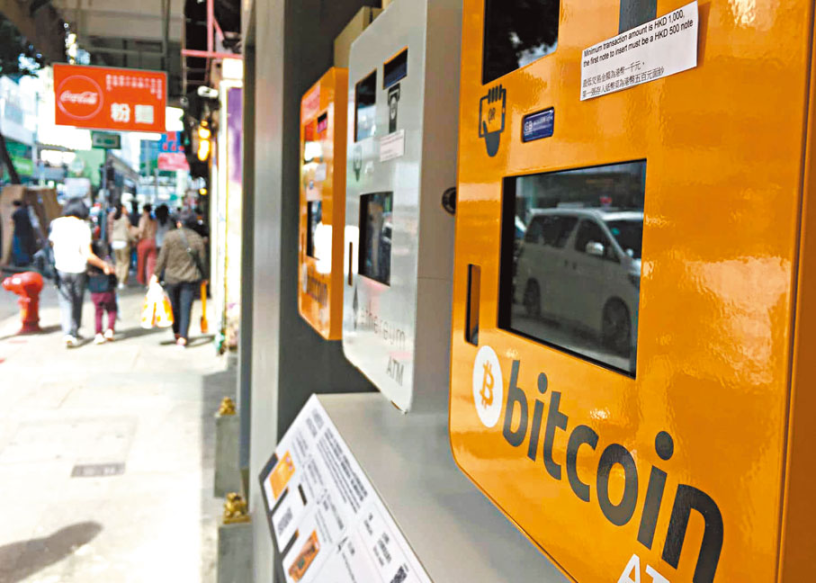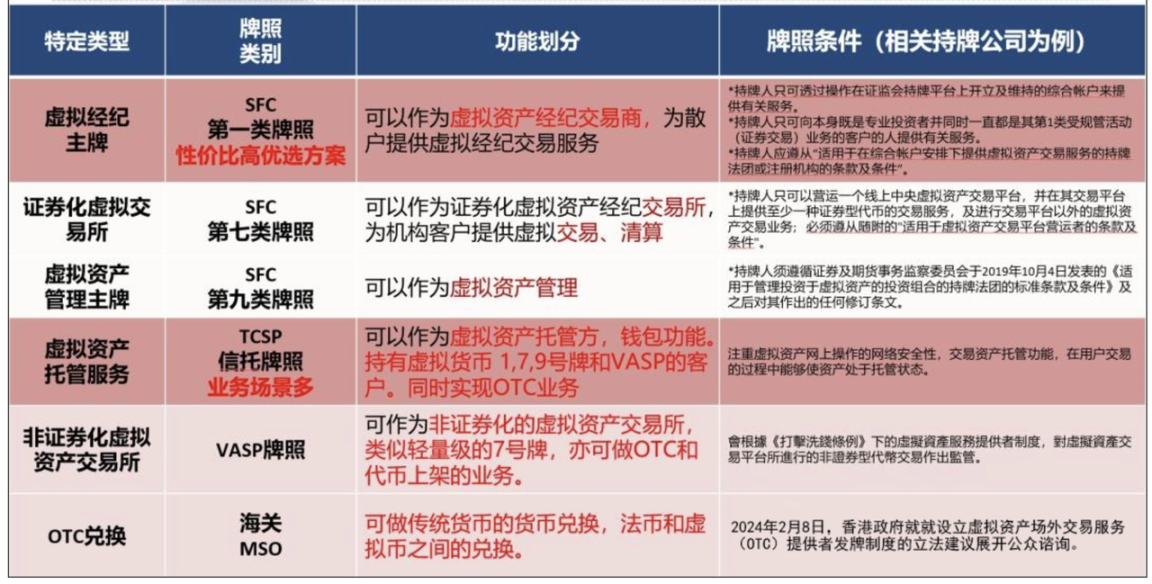Any venue for trading outside traditional exchanges can be considered an OTC market. As an international financial center, Hong Kong's open attitude and policies towards cryptocurrencies provide new channels for investors from mainland China.
Written by: FlowHarbour Research
Since 2021, the Chinese government has explicitly banned cryptocurrency trading. As traditional financial institutions cannot directly participate in cryptocurrency trading, over-the-counter (OTC) trading has become the main channel for many Chinese investors to engage in the cryptocurrency market, circumventing regulatory restrictions and meeting their investment needs.
OTC stands for Over-the-Counter, and as the name suggests, any venue for trading outside traditional exchanges can be considered an OTC market. In the cryptocurrency field, OTC trading mainly occurs in three forms: online platforms mediated by social media, offline physical exchange points, and cryptocurrency ATMs.
As an international financial center, Hong Kong's open attitude and policies towards cryptocurrencies provide new channels for investors from mainland China. According to data from Chainalysis, Hong Kong's cryptocurrency adoption rate grew by 85.6% in the past year, making it the fastest-growing region in the area. To further strengthen industry regulation and reduce retail investment risks, in September, the Hong Kong Securities and Futures Commission announced plans to jointly regulate OTC virtual asset trading services with the Customs and Excise Department. Previously, in a proposal announced in February 2024, this sector was only regulated by customs. It is reported that the Securities and Futures Commission has consulted the industry on a new licensing system for cryptocurrency OTC trading. Additionally, the Commission is exploring a licensing system for cryptocurrency custody services.

I. Current Status of OTC in Hong Kong
Hong Kong's cryptocurrency OTC market once thrived, with numerous exchange shops scattered throughout the streets, providing users with convenient cash and cryptocurrency exchange services. These shops typically did not require users to undergo identity verification (KYC), and the single transaction limit was relatively high; for example, some shops allowed exchanges of up to 1 million HKD last year, with users only needing to provide a phone number or email to complete the transaction. Compared to the high fees of digital exchanges, the exchange rates at OTC shops were more attractive and convenient, attracting a large number of users.
According to surveys, as of June 2023, the total amount of digital assets flowing through Hong Kong reached 64 billion USD, with OTC exchange shops accounting for a significant proportion. Hong Kong law enforcement agencies initially estimated that there are about 200 physical virtual asset OTC trading shops and approximately 250 active online virtual asset trading service providers across the city.

However, this free trading environment also harbors risks. The OTC market lacks regulation, leading to money laundering, fraud, and other illegal activities. For instance, in the JPEX and Hounax incidents that occurred in 2023, some cryptocurrency exchange shops misled investors through false advertising about platform compliance, resulting in significant losses. In the JPEX incident, investors lost as much as 180 million USD, while the Hounax scam led to a total loss of 18.9 million USD for 145 victims.
II. In February 2024, Hong Kong Announced Plans to Regulate Virtual Currency OTC Exchanges
To address the chaos in the OTC market, the Hong Kong government decided to strengthen regulation. In February 2024, the Secretary for Financial Services and the Treasury, Christopher Hui, stated that the government plans to regulate virtual currency OTC exchanges and will consult on the proposed regulatory framework. According to legislative proposals, Hong Kong plans to establish a licensing system under the Customs Department, requiring all virtual asset OTC trading service providers to apply for licenses and comply with anti-money laundering regulations and other relevant provisions. This means that the era of no KYC will officially come to an end, and OTC trading will become more transparent and standardized.
By reviewing the legislative proposal, the main contents of the new regulations will include:
1) Licensing System:
- All online platforms and offline entities (including ATMs) engaged in virtual asset spot trading services in Hong Kong must apply for a license from Hong Kong Customs.
- This move signifies the official end of the era without KYC, as all OTC platforms will be required to implement KYC processes.

2) Restrictions on Trading Currencies:
- Licensed OTC platforms are only allowed to offer cryptocurrencies listed on exchanges licensed by the Hong Kong Securities and Futures Commission, as well as stablecoins that obtain permission from the Hong Kong Monetary Authority in the future.
3) Anti-Money Laundering and Counter-Terrorist Financing Compliance:
- Licensed OTC platforms must comply with the provisions of Hong Kong's Anti-Money Laundering Ordinance, establishing a sound anti-money laundering and counter-terrorist financing system, including collecting customer information and monitoring suspicious transactions.
4) Penalties for Violations:
- Operating OTC businesses without a license, upon conviction, can result in a fine of up to 1 million HKD and imprisonment for two years.
- Licensed institutions that violate relevant regulations will face administrative penalties, including fines, reprimands, suspension, or revocation of licenses.
Currently, the public consultation on the OTC licensing system by the Hong Kong government ended in April. The new regulations have sparked heated discussions in the industry, with some believing that this will promote industry compliance, while others worry that overly strict regulations may hinder industry development. The specific implementation details of the new regulations are yet to be observed, but it is foreseeable that the Hong Kong OTC market will undergo significant changes.
III. How the New Regulations Will Affect the Market
The introduction of the new regulations will have far-reaching effects on Hong Kong's cryptocurrency market, especially in the OTC trading sector. Specifically:
- Industry Restructuring, Intensified Head Effect: The new regulations require OTC platforms to implement KYC verification, comply with anti-money laundering regulations, and restrict tradable currencies, which will significantly increase operational costs. Small OTC exchange shops may be forced to exit the market due to their inability to bear compliance costs, while large, compliant platforms will gain a larger market share, further increasing industry concentration.
- Rising Compliance Costs, Potential Transfer of Trading Costs: To meet regulatory requirements, OTC platforms will need to invest more resources in compliance, such as hiring compliance personnel and upgrading KYC systems. These rising costs may be partially passed on to users, leading to a decrease in the cost advantages of OTC trading.
- Decreased User Trading Experience: The introduction of KYC verification means that users will need to provide more personal information, which will reduce the convenience of trading. Additionally, restrictions on tradable currencies may also limit users' freedom of trading choices.
- Increased Market Transparency, Reduced Risks: The implementation of the new regulations will make OTC trading more transparent, allowing regulatory agencies to better monitor the flow of funds and combat money laundering and other illegal activities. At the same time, increased regulation of platforms will raise industry entry barriers, reducing the risk of investors falling victim to fraud.
Although the new regulations may cause some short-term shocks to the market, in the long run, a sound regulatory system will enhance investor confidence, attract more institutional funds, and promote the healthier and more sustainable development of Hong Kong's cryptocurrency market.
免责声明:本文章仅代表作者个人观点,不代表本平台的立场和观点。本文章仅供信息分享,不构成对任何人的任何投资建议。用户与作者之间的任何争议,与本平台无关。如网页中刊载的文章或图片涉及侵权,请提供相关的权利证明和身份证明发送邮件到support@aicoin.com,本平台相关工作人员将会进行核查。




